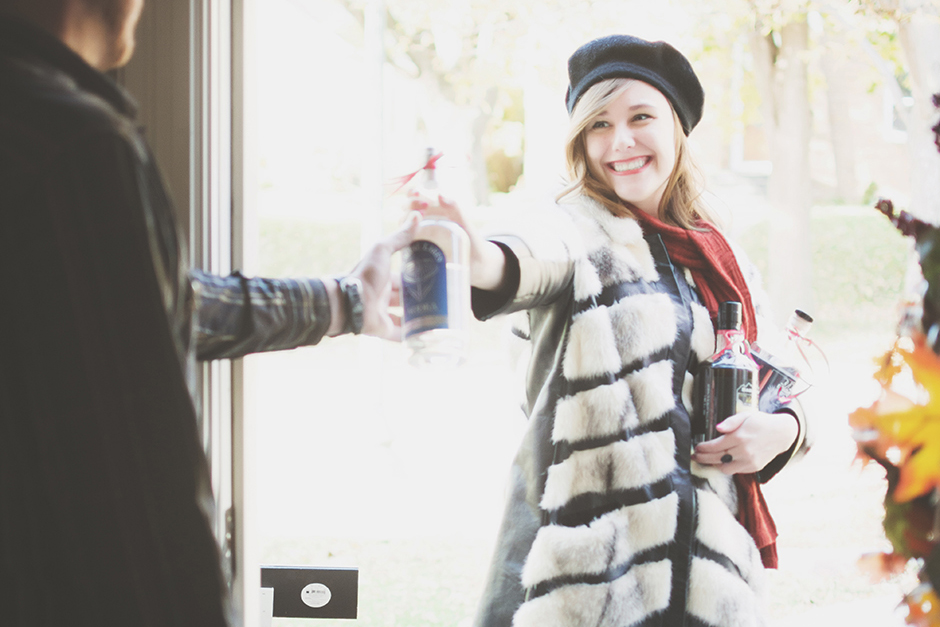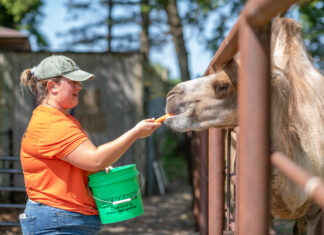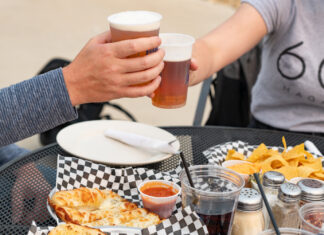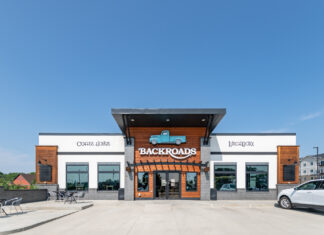Many of us enjoy a nice stiff drink from time to time. We all have our favorites – Jameson, Stolichnaya, or maybe a top shelf Scotch like Lagavulin or a good Glenfiddich. Now, a growing number of South Dakotans are working to create our next go-to spirit.
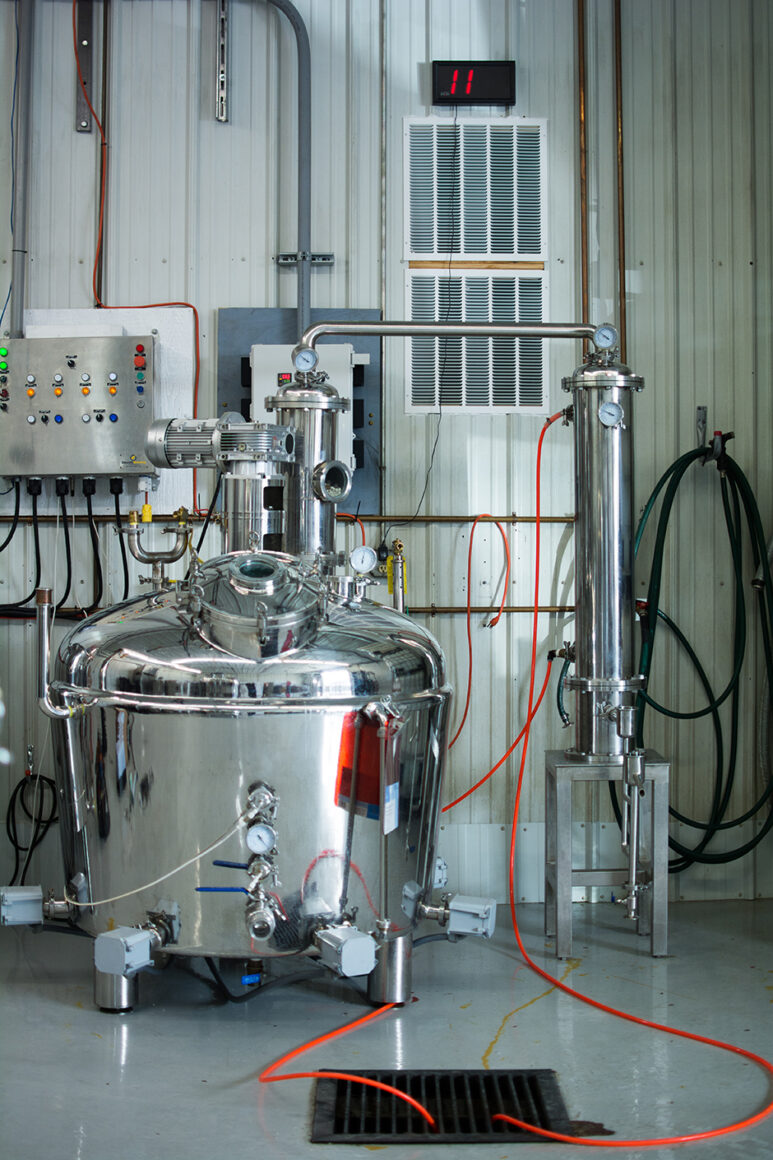
This year, South Dakota is celebrating the 20-year anniversary of the Farm Wine Act, legislation that enabled the commercial production and sale of wine. Today, there are roughly 30 wineries scattered throughout the state, and nearly the same number of breweries. And although its enabling legislation followed close behind, the state’s spirits industry is just now starting to take off, with the number of distillers sitting at seven, if only for the moment.

It all began a decade ago with Pierre’s Dakota Spirits Distillery and its Bickering Brothers brandy and whiskey. And slowly, more and more spirits enthusiasts filed for federal licenses and began distilling. For Phillip and Cindee Klein of Watertown’s Glacial Lakes Distillery, the small number was part of the appeal.
“The reason we did a distillery instead of a brewery is there are 4,000-some breweries in the United States now,” said Phillip. “There were only 400-some distilleries. When you see craft brewing taking off like that, you’ve got to assume craft distilling will do the same thing, just a few years later.”

The Kleins and two friends began planning Glacial Lakes three years ago, and finally began distilling in January. The first product ready for distribution was a vodka, since it doesn’t need to age. Made from locally-grown wheat, it is designed to be neutral on the palate, and virtually disappear into a cocktail. So far, it’s been picked up by 205 bars, restaurants, and liquor stores. But the Kleins, like most other spirit-makers in the state, remain employed full-time, with production, tastings, and events occupying evenings, weekends, and vacation time.
“Then it grew to the mammoth business we have right now,” laughed Michael Lewis, owner of Sturgis’ Black Hills Dakota Distillery, recalling the long process of filing for licenses and the initial trial and error involved in spirit making. “It’s not at the point that we’re looking at retiring on it or even quitting our day jobs to focus solely on the distillery. It’s been a slow go. It would have been kind of nice if it had taken off like the TV shows you see.”

Black Hills Dakota was the state’s third distillery, started by Lewis and his brother as their “million-dollar scheme.” While it has yet to blossom into that, making products like their flagship Sturgis Shine, has become a point of pride. The development of new and interesting flavors, a passion. And the ability to control quality, while reveling in the nuances of individual batches, a fascination. This is what Lewis loves about artisan spirit making.

“Once you learn a little more about the industry, it isn’t always what you think it is,” he said. “For instance, Crown Royal is looked upon as being a very uppity whisky. Well, you’ll find that Crown Royal will add coloring and flavoring to their spirit to get it to the point where they want it. That’s what they do and there’s nothing wrong or illegal about it, but it’s a lot different from an artisan distiller who doesn’t do that kind of stuff. You will find a slight variation from batch to batch, and that’s just the way it is. We don’t have a big lab where everybody’s analyzing the final product, saying, ‘We need to add more brown number 50,’ or whatever to get it up to the exact color. We don’t really care, because that’s not what we’re about.”

“We want to promote the awesome things in South Dakota.”
Lewis’s Sturgis Shine is based on a recipe for poitín, a very strong (and once-banned) Irish liquor. Although traditionally even higher, it is bottled at 100-proof, and drinkers are wise to follow the gentle suggestion on the side of the bottle: “Drink less. Drink better. Enjoy in moderation.”

Poitín is made from honey, sugar, and barley, where most moonshine is made from corn. For the owners of Kadoka’s Badlands Distillery, moonshining is a family legacy. At 22, Shaley Herber is one of the youngest distillers in the country. Her great-great uncle Joe Herber was known for the good quality hooch that came from his still during Prohibition, and he sold it to lawmen and lawmakers alike. His recipe, flavored with brown sugar syrup, has been passed down from generation to generation, and is now bottled as the 100-proof Venom.

Herber’s father, Jim, and business partner Mark Eschenbacher bought an old mechanic’s shop last year, a mere 20 miles from the ranch where Uncle Joe ran his still. With the help of family and friends, the building located a stone’s throw from I-90, now serves as a distillery and tasting room for half a dozen spirits, like the Weta Latte, made to taste like coffee in the most straight-forward possible manner.
“We run our 55-proof moonshine through a coffee machine, a traditional 110-cup urn,” Herber explained. “After that, we treat it with some vanilla, sugar, get it up to taste, and that’s probably our most popular one. Everyone likes that one. Especially beer and wine drinkers.”

Distillers are required, by law, to use mostly South Dakota products in their spirits, but many have proudly built it into their brand. At Badlands, the jalapenos floating in the Branding Iron are grown by family members, and the honey used in the Honey Buzz comes from the Herber Ranch. Back in Sturgis, one can view Bear Butte from the beehives located across the lawn from the Black Hills Dakota Distillery. And in Watertown, the Kleins believe featuring local wheat makes all the difference.
“We want to promote the awesome things in South Dakota,” said Phillip. “We want to promote our grains and our weather. No other place in the world is really like this. We could give our recipe to somebody in Louisiana or somewhere else in the world, and unless they got the grain from here and fermented it at these temperatures, it would taste totally different.”

It’s that difference these distillers hope consumers will enjoy, and come to request at their local bars and liquor stores.
“Because it’s a small industry, you have to go and look for us and be willing to give it a try,” said Lewis. “Go into it expecting something different. There’s a lot of good distillers and wineries and breweries out there and they make good products. If you come out to our facility, I’ll sit and talk to you as long as I think you want me to talk. You can try something new, meet a lot of nice people, and have a heck of a good time doing it, too.”

Hot Tiramisu
1 oz Badlands Distillery Weta Latte
1 C strong brewed coffee
1/2 C hot milk
2 T half & half
Whipped cream
Mint Chocolate Martini
1.5 oz Glacial Lakes Vodka
0.5 oz creme de cacao
0.5 oz green creme de menthe
Splash half & half
Splash club soda
Lemon Party Punch
2 C Black Hills Dakota Distillery Sturgis Shine
1 C fresh lemon juice
6 C water
2 C simple syrup
½ C grenadine
Fruit for garnish


